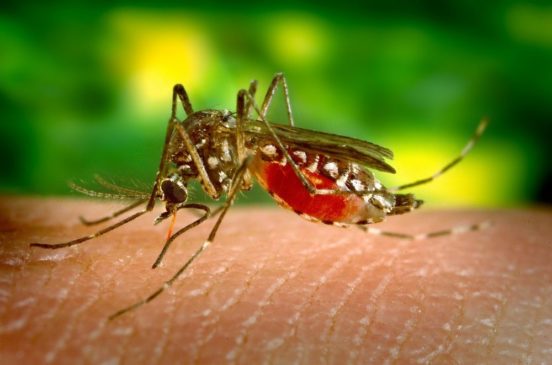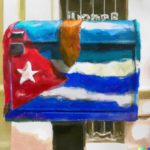Letztes Update: 11. September 2023
Do we need vaccinations for Cuba and if so, which ones?
Do we need special vaccinations for Cuba? This question appears again and again on the Internet and is only easy to answer at first glance. Because we had cases of cholera in Cuba in the last few years, there is always Dengue fever and Chikungunya has already appeared in Cuba.
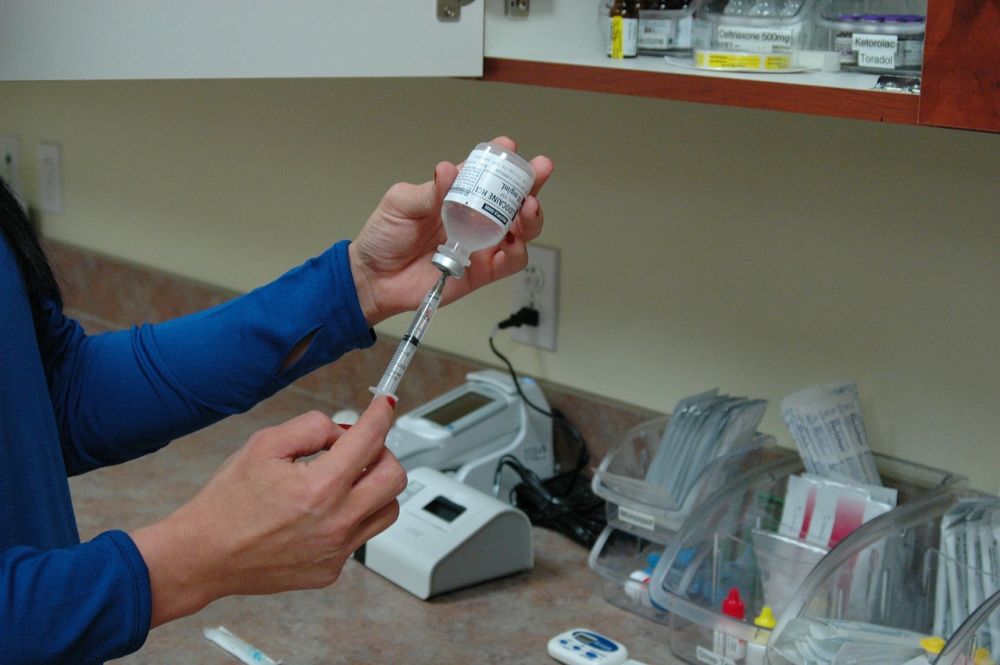 Basically, however, the risk of infection in Cuba is not as high as in other subtropical countries, but there are some things you should be aware of about infections and vaccinations for Cuba – the German Federal Foreign Office and some other institutions therefore issue warnings.
Basically, however, the risk of infection in Cuba is not as high as in other subtropical countries, but there are some things you should be aware of about infections and vaccinations for Cuba – the German Federal Foreign Office and some other institutions therefore issue warnings.
If you are from the US, you find warnings in English from the Center for Desease Control and Prevention.
Disclaimer: I am not a doctor, so if in doubt, contact one and do not refer to me! I have read the information in this article on the web and it is only as good as my sources.
No compulsory vaccination for travellers from outside Cuba
So first of all: no vaccinations are required for Cuba – as long as you are coming from Europe and other countries with similar climate. When entering Cuba you will be asked if you were in certain countries. Last year this was the question about countries with Ebola. Currently you are asked if you have been in countries with yellow fever epidemics in the last 6 days or if you have had a transit stop there. But this can change now and again depending on the situation, so if you travel around the world a lot, then find out beforehand which rules apply to Cuba!
When are vaccinations necessary?
The German Centre for Travel Medicine distinguishes between 3 types of travel, summarising the following: the classic tourist who more or less stays in his hotel or makes excursions from hotel to hotel. The tourist who also makes excursions inland and hikes there, stays overnight in Casas Particulares or eats a lot of local food, and the one who travels the country as a backpacker or lives with the locals.
- Type 1, the tourist: If you are on a tourist trip, the hepatitis A vaccination is recommended.
- Type 2, the round tripper: If you also make trips inland, cholera vaccination is recommended.
- Type 3, the backpacker: And if you have intensive contact with locals or backpack, then it is hepatitis A, cholera, hepatitis B, rabies and typhoid.
A short note about current fashion: if you want to get tattoos as a souvenir of Cuba, then you should always think about hepatitis B, because it is transmitted via needles and syringes.
What Never Hurts (pun intended): The Basic Immunizations
Of course, you should check your normal basic immunizations – tetanus, diphtheria, pertussis, possibly also mumps, measles rubella (MMR), pneumococcus and influenza – immunizations for those are always important.
Unfortunately, the emergency and health system in Cuba is not as good as here in the Western World. It is better than in the other countries of the region, but, for example, you can’t count on that the emergency car gets you to a hospital in 15 minutes. That means, if you are infected with tetanus, for example, this can turn out much more serious than here.
Best Time for Vaccinations
If you think you need a vaccination, remember to get it on time. You should consult your doctor at least 4 – 6 weeks in advance, because it always takes some time before a vaccination takes effect.
However, I would like to point out here again that I am not a doctor myself and only reflect on what I read!
Malaria in Cuba?
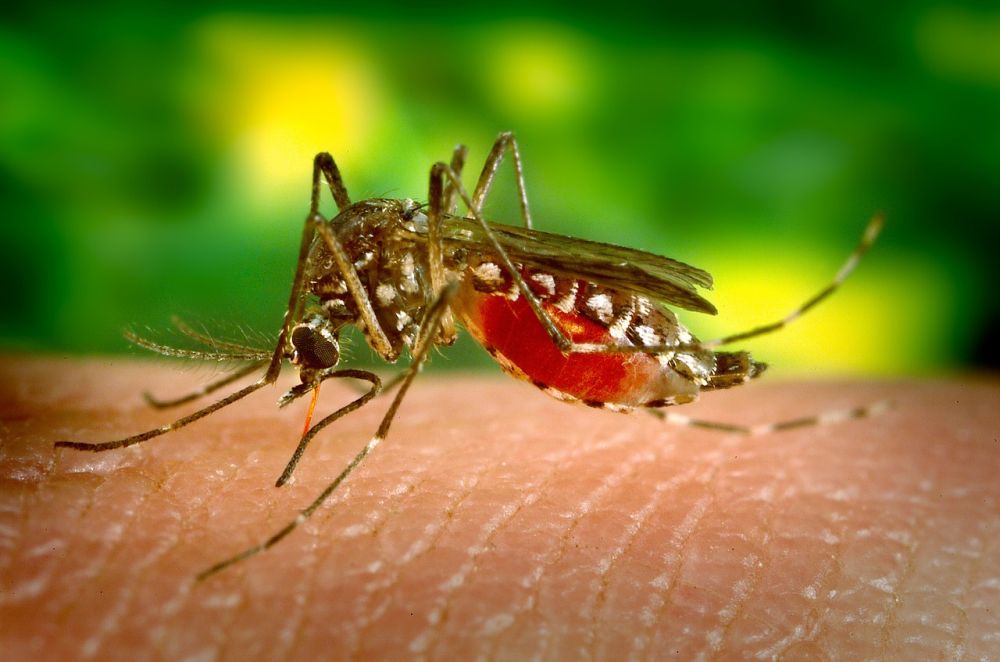 Since 1973, Cuba has been considered malaria-free by the WHO, and this stays largely true. Occasionally, some cases have occurred, but those may also have been imported.
Since 1973, Cuba has been considered malaria-free by the WHO, and this stays largely true. Occasionally, some cases have occurred, but those may also have been imported.
Cholera Outbreaks
Yes, there have been cholera outbreaks in Cuba in recent years, but they have been so limited that one must have had real bad luck to get close to the pathogens.
And the Cuban government also reacted quickly and counteracted, so that we as tourists definitely do not come into contact with the pathogen. The restaurant La Roca in Vedado, for example, was affected by cholera, and to my knowledge one person died there. Consequently, the entire restaurant was closed, the management was replaced and everything was renovated.
During the high time of the cholera infection, all students had to disinfect their hands with a chlorine solution when entering the university buildings in order to prevent possible spread. This has also been implemented in other government agencies. Of course, the government can’t prevent everything in Cuba, but action is taken quickly to prevent worse.
HIV tests mandatory for longer stays
Also, if you want to stay longer in Cuba, you must have a valid negative HIV test. Whether this is discriminatory remains to be seen, but at least it will lead to more people being tested in our country and being aware of the disease in case of doubt.
Mosquito diseases: Dengue and Chikungunya fever
Diseases transmitted by mosquitoes in Cuba are dengue and chikungunya fever. There are no vaccinations against either, i.e. the only way to protect yourself against the infection is to protect yourself well against mosquitoes.
Update: Finally, there is a Dengue vaccination that you can get starting with the age of 4 years!
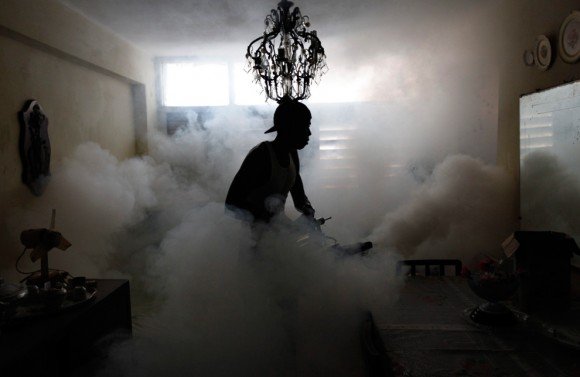 Anyone who has ever been to Cuba also knows what is typically done against the insects, the Fumigación. When it’s your turn, your house, your hotel or your casa, a group of people who wear equipment that looks like chainsaws appear and they smoke the house out. It kills everything that crawls and creeps. There are even cars that fumigate the streets: a big truck can then be seen all the way down the road and from a distance – you think there’s a fire!
Anyone who has ever been to Cuba also knows what is typically done against the insects, the Fumigación. When it’s your turn, your house, your hotel or your casa, a group of people who wear equipment that looks like chainsaws appear and they smoke the house out. It kills everything that crawls and creeps. There are even cars that fumigate the streets: a big truck can then be seen all the way down the road and from a distance – you think there’s a fire!
Tip: Never use Aspirin or other blood thinners, as Dengue can cause inner bleedings. And with Aspirin, there is the danger of dying of inner bleedings.
Reimbursement of Expenses (for Germans)
If you want to know what costs your health insurance company will cover, you can find a list of all health insurance companies with the corresponding coverage at the Centre for Travel Medicine.
Where can you find current information (in German)
There are some places on the net where you can always get the latest information about the vaccination situation in Cuba – first of all, the Foreign Office and their travel warnings. Of course there are warnings of all kinds of dangers, but also information no all the vaccinations you may need. Then, and in my opinion, this is the best source, there is the Centre for Travel Medicine. There you will find medical advice on vaccinations, sorted by country, always up-to-date and reliable.
Therefore I recommend you, if you are unsure, to read the current situation on the corresponding pages (in German)
- The security warnings of the Federal Foreign Office
- Centre for Travel Medicine
- Vaccination calendar of the Robert Koch Institute
- The practical tips for travelling from Focus
Conclusion on vaccinations
If you just travel on a tourist trip to Cuba, you don’t need to worry about vaccinations. Cuba is more or less safe, especially in comparison with other countries in the region. That means, everything that is beyond the standard basic immunization you only need if you go into the country: eating a lot of home-cooked food, travels into the countrysite, living there for a long time, etc. If you are unsure, check out the site of your foreign ministry, they will have information on Cuba. You know: I’m not a doctor… ?
So, in the end, all I can say is: have fun when travelling to Cuba, don’t think too much, stay healthy and take care!
Saludos from Berlin,
Dietmar
PS: For great Cuba pictures, you can follow us on Instagram or Pinterest!
